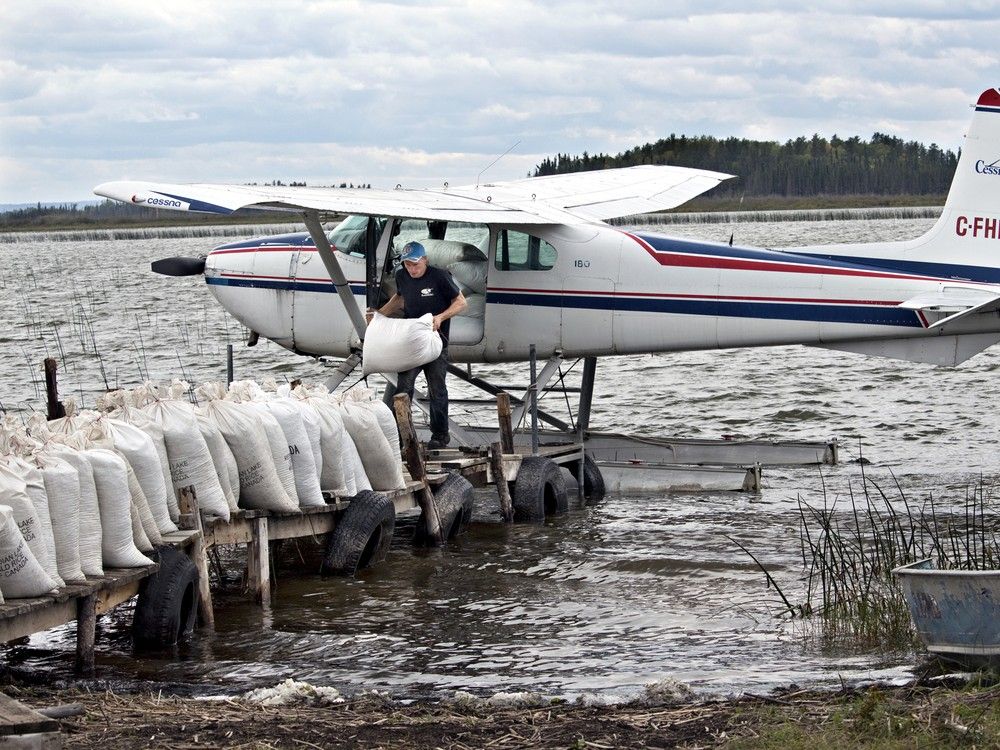Top Stories
Urgent Update: Rice Worm Infestation Devastates Saskatchewan Wild Rice

URGENT UPDATE: A severe infestation of rice worms is wreaking havoc on wild rice crops in northern Saskatchewan, leaving local harvesters devastated. Phyllis Smith, a veteran harvester from the Pinehouse Lake area, reports a staggering drop in her yield from 300 bags last year to just 20 bags this year. “It’s been devastating,” she stated, highlighting the urgent concern for communities reliant on this crucial crop.
The rice worm emergence, first noted by Smith five years ago, has intensified, particularly in the past year. Authorities confirm that the infestation has drawn attention from researchers at the University of Saskatchewan, Saskatchewan Polytechnic, and the National Research Council, who are now investigating its impact. Last year, the amount of wild rice processed in Saskatchewan plummeted from an average of 4 million pounds to just 750,000 pounds, a decrease of 3.25 million pounds. This significant drop has pushed local harvesters to seek urgent solutions from researchers.
Tim Sharbel, a professor at the University of Saskatchewan, remarked, “It was so bad in some lakes that many harvesters just simply gave up and decided not to harvest.” The economic ramifications are considerable, with losses estimated at $70,000 for each affected lake.
Research is now focusing on innovative pest control methods, as pesticides are not viable in this organic setting. Sharbel has identified insect hormone traps and pheromones used in Asia as potential solutions. In collaboration with harvesters from The Pas in northern Manitoba, a pilot study is underway to plant traps and analyze samples from northern lakes.
The environmental context is equally alarming. Sharbel noted that warming temperatures and increased wildfires may be exacerbating the rice worm issue, with elders observing changes in local flora that could support worm populations.
Blaine Chartrand, a research chair at Saskatchewan Polytechnic, emphasized the need for further investigation into rice worm life cycles and their impact on unaffected lakes. “We do need to research the insects more,” he stated, signaling a commitment to understanding and combating this emerging threat.
As the situation develops, local communities and researchers are eager for solutions to protect their livelihoods and sustain the wild rice industry. The urgency of this crisis cannot be overstated, as harvesters and researchers work together to address the pressing challenges posed by the rice worm infestation.
Stay tuned for updates on this developing story as local officials and researchers continue their fight against this agricultural crisis.
-

 World3 months ago
World3 months agoScientists Unearth Ancient Antarctic Ice to Unlock Climate Secrets
-

 Entertainment3 months ago
Entertainment3 months agoTrump and McCormick to Announce $70 Billion Energy Investments
-

 Science3 months ago
Science3 months agoFour Astronauts Return to Earth After International Space Station Mission
-

 Lifestyle3 months ago
Lifestyle3 months agoTransLink Launches Food Truck Program to Boost Revenue in Vancouver
-

 Technology2 months ago
Technology2 months agoApple Notes Enhances Functionality with Markdown Support in macOS 26
-

 Top Stories1 week ago
Top Stories1 week agoUrgent Update: Fatal Crash on Highway 99 Claims Life of Pitt Meadows Man
-

 Sports3 months ago
Sports3 months agoSearch Underway for Missing Hunter Amid Hokkaido Bear Emergency
-

 Politics2 months ago
Politics2 months agoUkrainian Tennis Star Elina Svitolina Faces Death Threats Online
-

 Technology3 months ago
Technology3 months agoFrosthaven Launches Early Access on July 31, 2025
-

 Politics3 months ago
Politics3 months agoCarney Engages First Nations Leaders at Development Law Summit
-

 Entertainment3 months ago
Entertainment3 months agoCalgary Theatre Troupe Revives Magic at Winnipeg Fringe Festival
-

 Politics1 week ago
Politics1 week agoShutdown Reflects Democratic Struggles Amid Economic Concerns





















